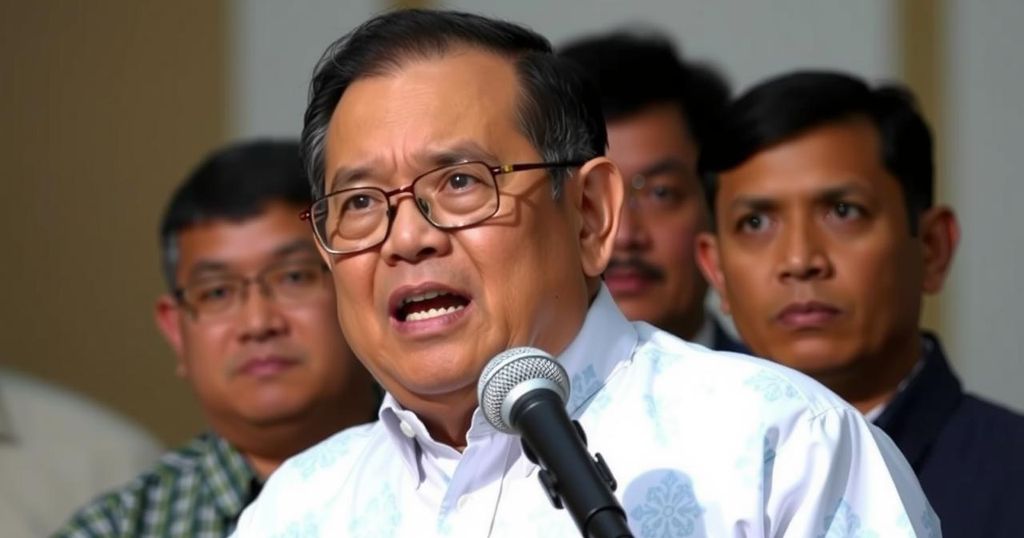President Prabowo Subianto’s plan to pardon corrupt individuals returning stolen assets has been criticized by Lakso Anindito, who argues it could lead to increased corruption. Anindito suggests focusing on stronger enforcement of asset recovery and judicial independence instead. Prabowo defended the plan as a way to allow corrupt individuals a chance to repent without public exposure, igniting debate on corruption in Indonesia.
The proposal by President Prabowo Subianto to pardon individuals convicted of corruption, contingent upon their willingness to return embezzled assets, has faced severe criticism. Lakso Anindito, the Chairman of the Indonesia Memanggil 57+ Institute, expressed concerns that this initiative could exacerbate corruption rates rather than diminish them. He emphasized that removing the consequences for such criminal behavior undermines deterrence and suggests that it may encourage corrupt individuals to rationalize their actions. Moreover, Anindito advocated for intensified asset recovery initiatives instead of amnesty, citing the need for judicial independence in combatting corruption effectively.
President Prabowo articulated his vision for providing pardons during a recent speech at Al-Azhar University in Cairo. He justified the approach by stating that allowing corrupt individuals to restore their misappropriated funds could offer them a pathway to redemption while also protecting their identities. This move has led to significant debate regarding the implications of such pardons on the integrity of anti-corruption efforts in Indonesia, with critics urging the government to focus instead on implementing more robust measures against corruption and enhancing law enforcement independence.
In Indonesia, corruption has remained a persistent and major issue that undermines governance and public trust. Various government administrations have attempted to combat this through legislative reforms and enforcement initiatives. Recently, President Prabowo Subianto has proposed an alternative approach that involves pardoning corruptors who return stolen funds, which has sparked a critical discourse among anti-corruption advocates and political observers. Many argue that any leniency towards corruption could set a precedent that encourages further criminal activity rather than deterring it.
In conclusion, President Prabowo Subianto’s proposal to pardon corrupt individuals in exchange for the return of embezzled assets has raised serious concerns among anti-corruption advocates, who believe it could worsen the corruption problem in Indonesia. The suggestion by Lakso Anindito to focus on enforcing asset recovery measures and strengthening the independence of law enforcement serves as a more robust approach to combatting corruption. Ultimately, the discourse surrounding this proposal underscores the need for a firm stance against corruption to preserve public trust and uphold justice.
Original Source: en.tempo.co






